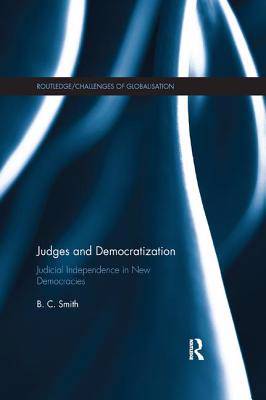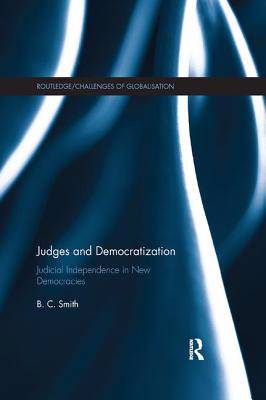
- Retrait gratuit dans votre magasin Club
- 7.000.000 titres dans notre catalogue
- Payer en toute sécurité
- Toujours un magasin près de chez vous
- Retrait gratuit dans votre magasin Club
- 7.000.0000 titres dans notre catalogue
- Payer en toute sécurité
- Toujours un magasin près de chez vous
54,45 €
+ 108 points
Format
Description
Judiciaries must be politically impartial and immune from political interference if democracy is to be consolidated in countries in transition from authoritarian rule. Without an independent judiciary there can be no rule of law, and without the rule of law there can be no democracy.
Judges and Democratization
is based on the premise that democracy cannot be consolidated without the rule of law of which judicial independence is an indispensable part. It pays particular attention to the restraints placed upon judicial independence, and the reforms which are being applied, or remain to be adopted, in order to guard against the different kinds of interference which prevent judicial decisions being taken in a wholly impartial way. It examines the paradox of judicial activism arising from the independence endowed upon the judiciary by post-authoritarian constitutions. The book asks how, in the context of this endowed authority, such accountability can be made compatible with the preservation of judicial independence when the concept of an accountable, independent judiciary appears to be a contradiction in terms.This text will be of key interest to teachers and students of politics, comparative government/politics, combined politics and law, democracy and governance, human rights and democratization, and democratic development.
Spécifications
Parties prenantes
- Auteur(s) :
- Editeur:
Contenu
- Nombre de pages :
- 232
- Langue:
- Anglais
- Collection :
Caractéristiques
- EAN:
- 9780367173722
- Date de parution :
- 17-01-19
- Format:
- Livre broché
- Format numérique:
- Trade paperback (VS)
- Dimensions :
- 156 mm x 234 mm
- Poids :
- 331 g

Les avis
Nous publions uniquement les avis qui respectent les conditions requises. Consultez nos conditions pour les avis.






